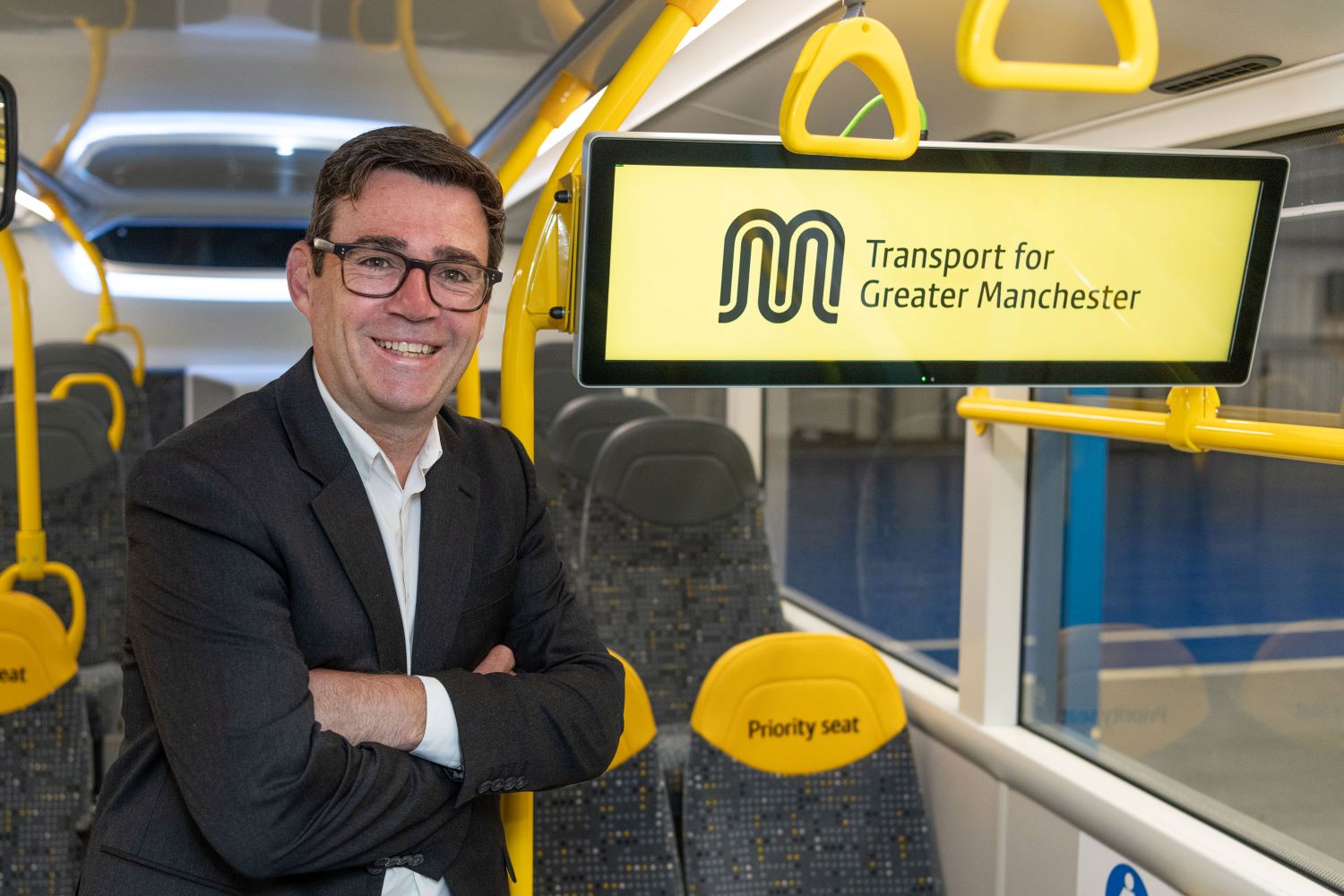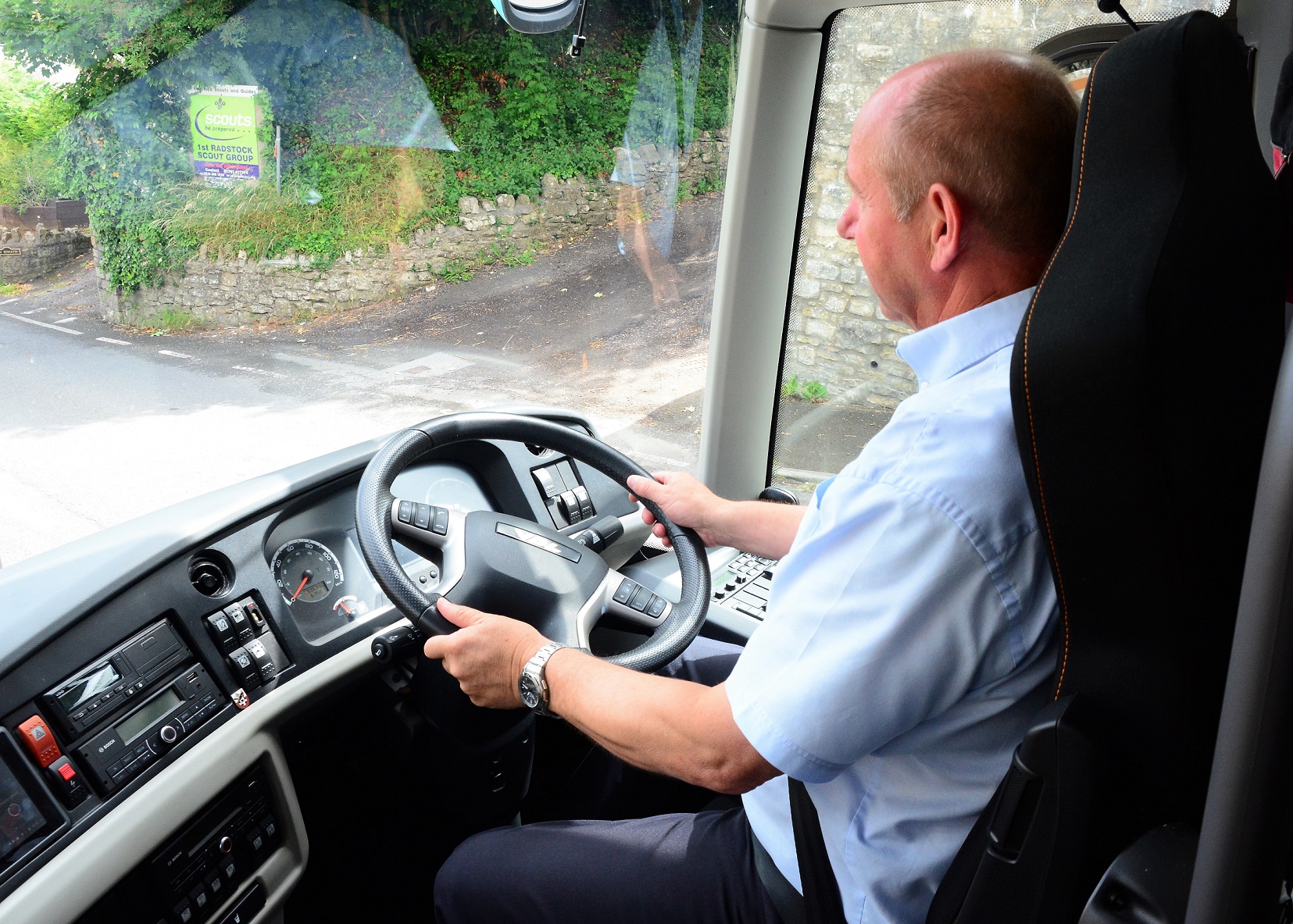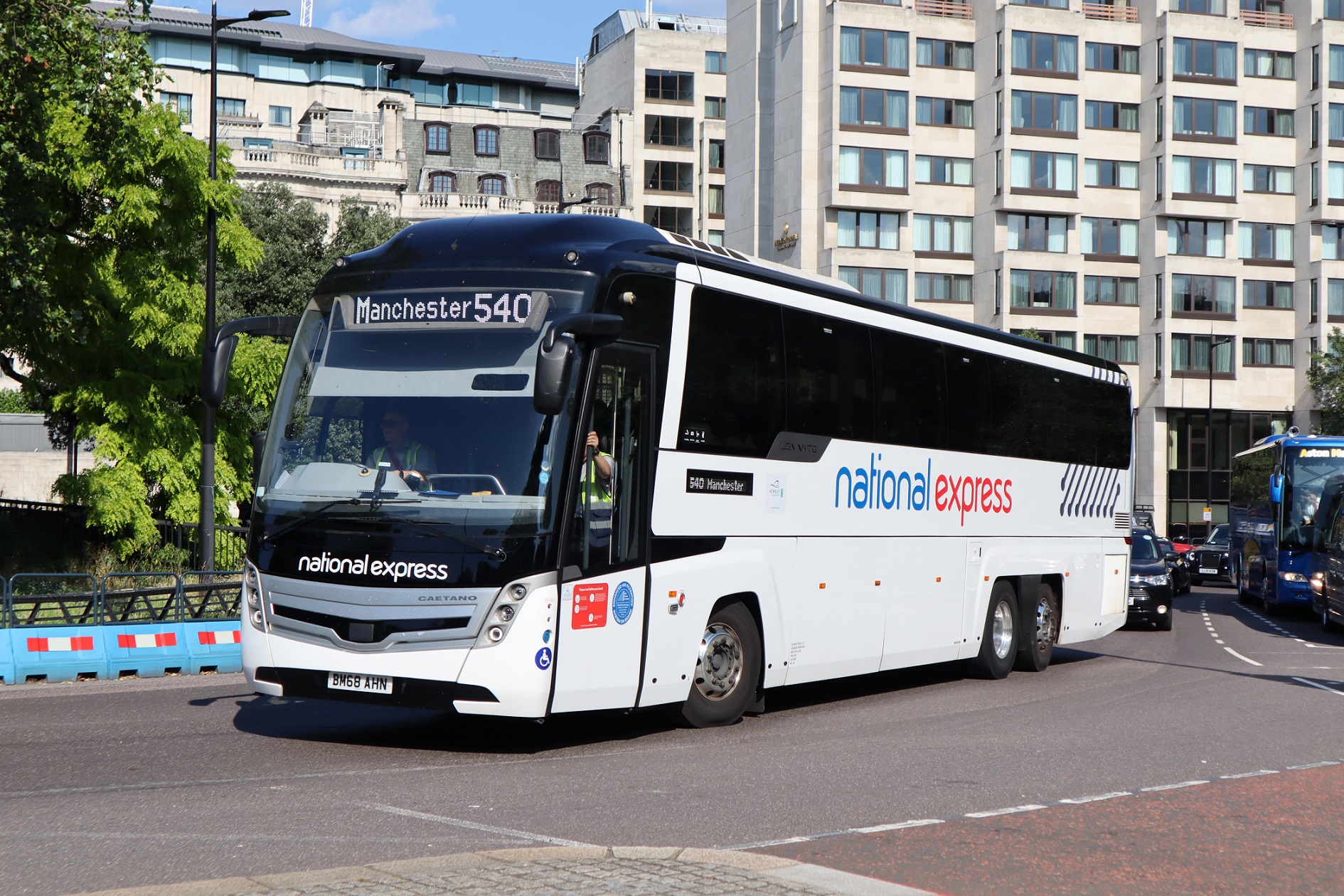An ambitious Bus Strategy is today being presented to the Greater Manchester Combined Authority and Bee Network Committee.
Transport for Greater Manchester (TfGM) wants to increase yearly bus journeys across the network to 50 million, representing a 30% increase on current levels, by 2030.
Less than two months before the start of franchising of the network in Manchester, the transport authority is setting out a vision to revolutionise buses by means of more affordable fares, a more user-friendly network and improved bus priority.
As well as electrification of the service – the first 50 will enter service in Wigan, Bolton and parts of Salford and Bury from September – TfGM want to boost accessibility. The vehicles will have two wheelchair bays, hearing induction loops, audio and visual announcement systems and anti-slip flooring.
Proposals in the Strategy include installation of 500 more accessible bus stops and real-time information displays at 300 stops. Multi-modal tickets are part of the plan to improve value for money.
TfGM aims to to have buses run at least every 12 minutes on key radial and orbital routes, and to provide 90% of the population with a 30-minute frequency bus or Metrolink service on weekdays within 400m of their home.
Among aims for on-street improvements across 70km of the network are signal and bus stop upgrades, and enhanced access to bus stops by walking and wheeling.
Andy Burnham, Mayor of Greater Manchester, says: “Bus franchising will allow us to reimagine the role of buses within a wider integrated transport system and – over time – reshape this critical part of our infrastructure to serve the modern city region.
“More people using our better buses will help reduce congestion and air pollution, support economic growth, create access to opportunities, improve residents’ health and reduce social exclusion: vital elements in building the greener, fairer, and more prosperous Greater Manchester of the future.
“In 1824, the UK’s first bus service took to the streets of Greater Manchester, sparking a public transport revolution. Two hundred years later, our city region is again leading the way outside London, as we use the vision set out in this plan to build a bus system for everyone, of which Greater Manchester can be proud.”
Ahead of the presentation planned for 27-28 July, TfGM said funding would be crucial to delivery of its ambitions. The proposals will be shared with government and opposition parties during party conferences in the autumn.
Vernon Everitt, Transport Commissioner for Greater Manchester, adds: “Safe, reliable and affordable buses are at the heart of the integrated Bee Network – bringing together buses, Metrolink, trains and active travel into one joined-up system. This will transform public transport for the people and businesses of this fast-growing region and provide an attractive alternative option to using the car.
“This strategy shows how we will continuously improve all aspects of Greater Manchester’s buses, opening up opportunities for new jobs, homes, education and businesses and helping make our region fairer and more sustainable.
“It is a very exciting time for passengers and all the hard-working staff who keep the bus service moving. Our message to Greater Manchester is – please ‘Get on Board’ and help us keep the improvements to your bus services coming.”




























